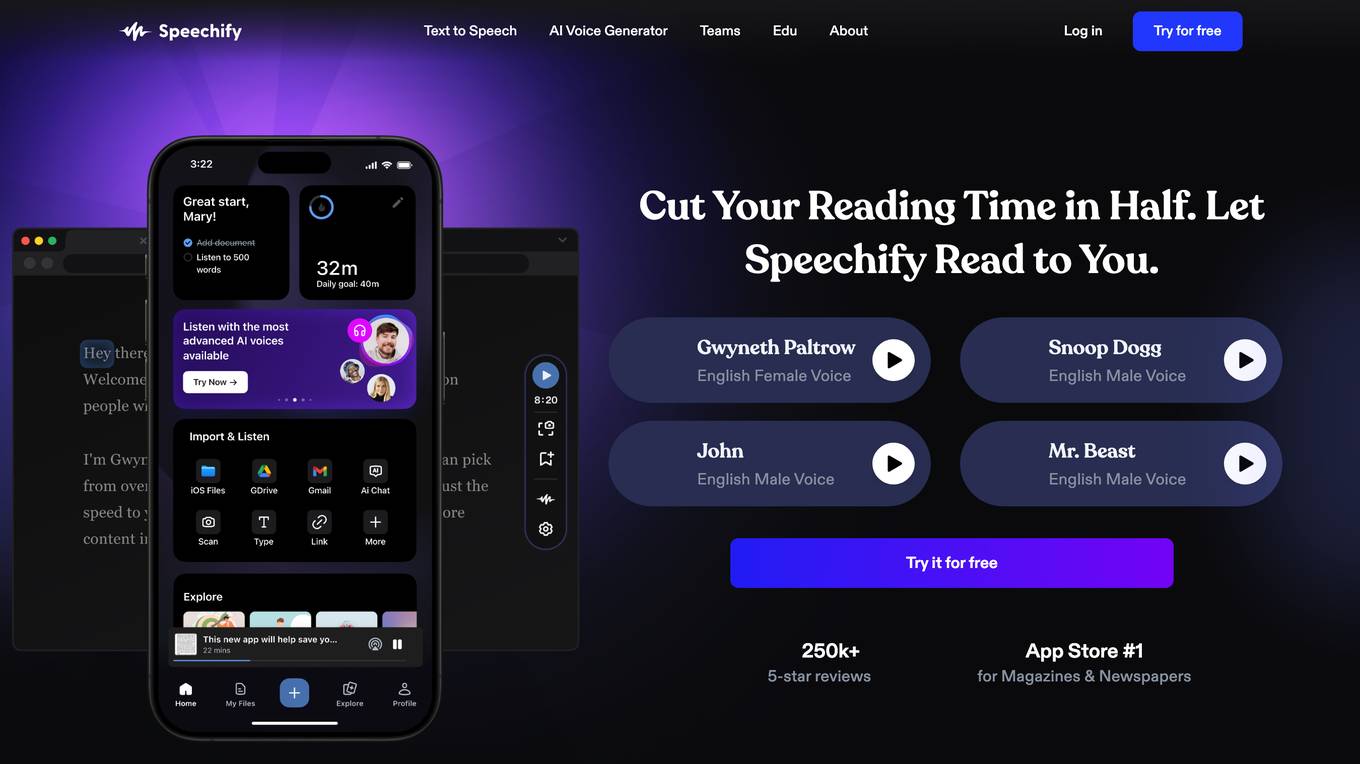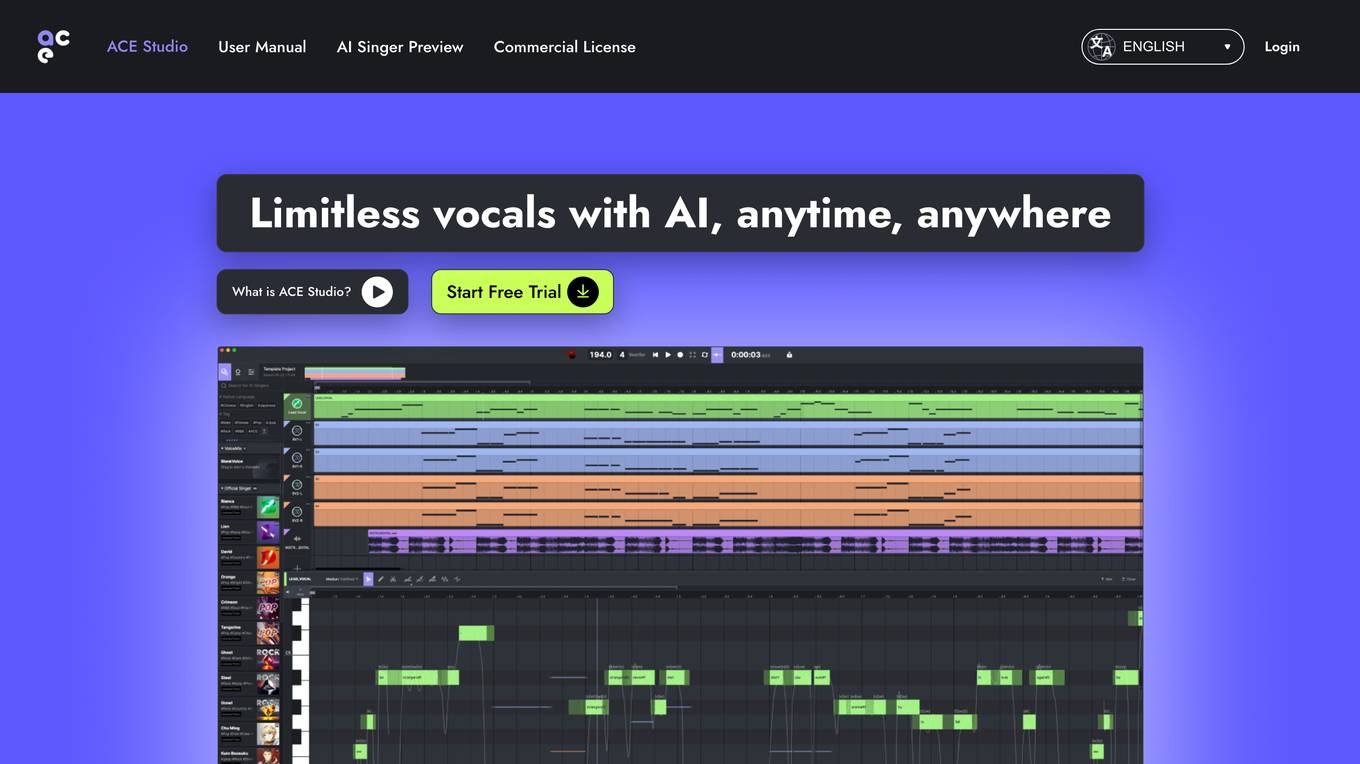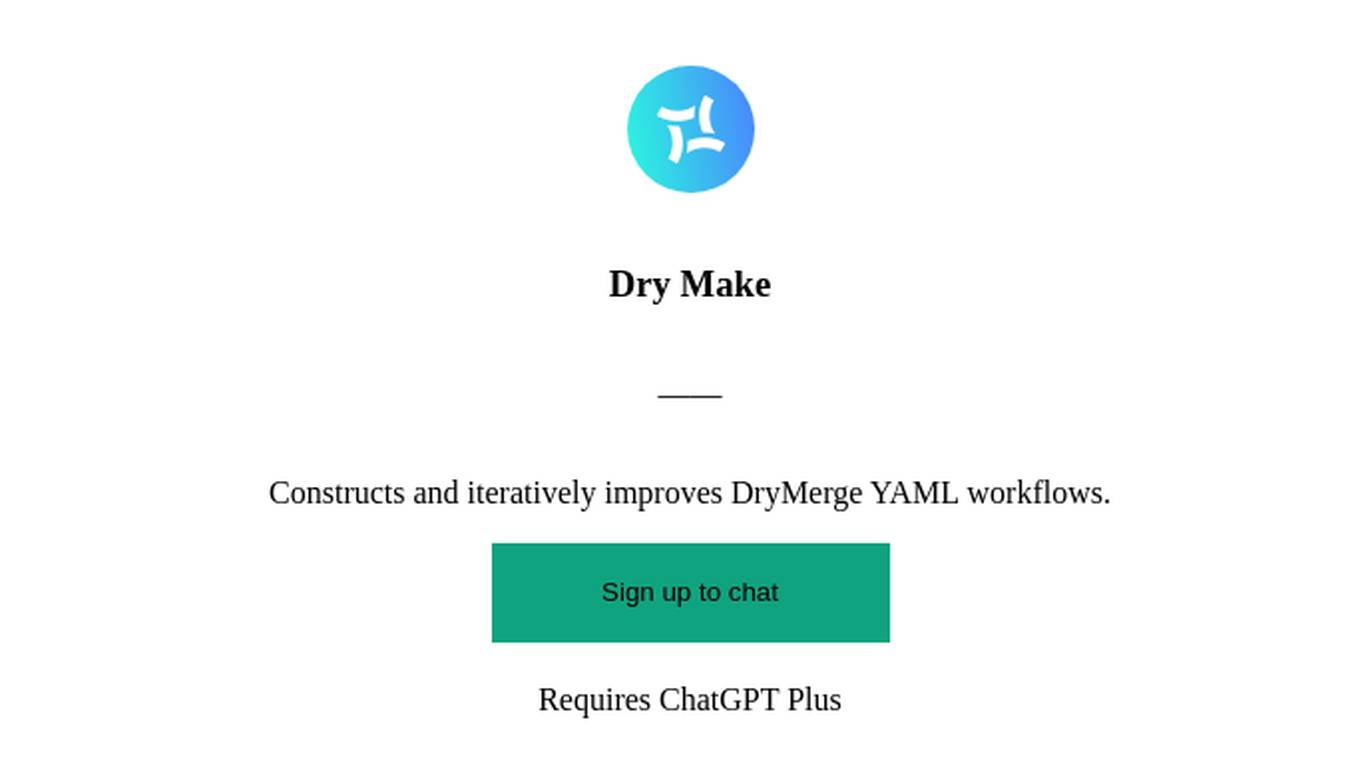Best AI tools for< Dry Out A Flooded Basement >
3 - AI tool Sites

BrainAccess
BrainAccess is an AI-enabled electroencephalography (EEG) and hyperscanning solution designed for research, brain-computer interface development, neuromarketing, and beyond. It offers dry-contact EEG electrodes, wireless connectivity, and a compact form factor for portable applications. The software supports Lab Streaming Layer (LSL) protocol, enabling synchronized EEG measurements with stimulus onsets or sensor data. BrainAccess also facilitates hyperscanning, allowing synchronized brain activity measurements from multiple individuals. The user-friendly software development kit supports multiple programming languages for device control and EEG application development.

Speechify
Speechify is the #1 rated AI text to speech app in its category with over 250,000 5 star reviews. It is available as a Chrome extension, iOS app, Android app, Microsoft Edge Add-on, and web app. Speechify can convert any text into natural-sounding AI voice in over 50 languages and accents. It can also read aloud any PDF, doc, or web page. Speechify is used by students, professionals, readers, and those who struggle to read. It can help with reading comprehension, focus, and retention. Speechify is also a great tool for people with disabilities such as dyslexia, ADHD, and dry eyes.

ACE Studio
ACE Studio is an AI Vocal Workstation that allows users to generate vocals from various professional AI vocalists by typing MIDI and lyrics. It simplifies the production of lead vocals, harmonies, backing vocals, and choirs. The platform features a next-generation AI Singing Synthesis Engine that aims to deliver natural and expressive vocal performances. Users can access over 41 AI pro-singers in English, Chinese, and Japanese for music production. ACE Studio offers tools for editing and controlling vocal emotions, converting dry vocals into MIDI clips, blending voices, and customizing AI voice models.
0 - Open Source AI Tools
13 - OpenAI Gpts

Osuszania
Zapytaj AI jak osuszać pomieszczenia. Po wiecej informacji wejdź na osuszaniemuru.pl

Dry Jenny, the Dry January Joker Provider
Gives you a Joker for Dry January, but only if you can convince her...

Sake Pairing Expert from JAPAN
Recommends Japanese sake based on meal descriptions or photos.Sake is difficult because there are different kinds of sake, such as sweet and dry. Therefore, they suggest what kind of sake is recommended for the current meal.

ADvisor (アトピー性的皮膚炎アドバイザー)
Expert on Atopic Dermatitis research, focusing on scientifically validated information.







